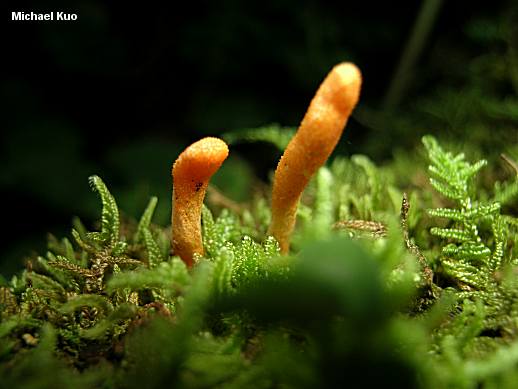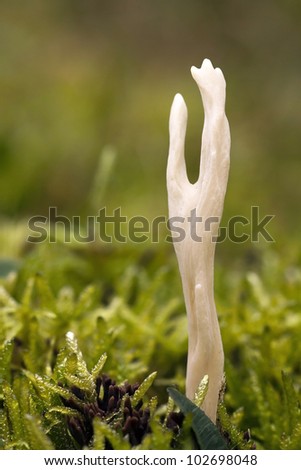“Medicinal mushrooms and cancer therapy: translating a traditional practice into Western medicine… novel anticancer agents are being sought from traditional medicine… Purified bioactive compounds derived from medicinal mushrooms are a potentially important new source of anticancer agents.” http://www.ncbi.nlm.nih.gov/pubmed/16702701
“New scientific approaches to cancer treatment: can medicinal mushrooms defeat the curse of the century? Unfortunately, our age, heredity, lifestyle, race, and ethnicity are directly connected to the development of carcinogenesis… It is already well established that medicinal mushrooms represent a potential source for biologically active compounds with immunomodulating, free radical scavenging, anti-inflammatory, antibacterial, antifungal, antiviral, hepatoprotective, antidiabetic, and anticancer activities… low-molecular weight mushroom substances… representing a new scientific approach to cancer treatment and prevention.” http://www.ncbi.nlm.nih.gov/pubmed/22339703
“Medicinal mushroom modulators of molecular targets as cancer therapeutics..high-molecular-weight polysaccharides or polysaccharide-protein complexes from mushrooms appear to enhance innate and cell-mediated immune responses, exhibit antitumor activities in animals and humans, and demonstrate anticancer properties” http://www.ncbi.nlm.nih.gov/pubmed/15726350
“Antitumor activity of mushroom polysaccharides: a review” http://www.ncbi.nlm.nih.gov/pubmed/22865023
“Bioactive polysaccharides from traditional Chinese medicine herbs as anticancer adjuvants.” http://www.ncbi.nlm.nih.gov/pubmed/12470436
“Immunomodulatory and anti-tumour polysaccharides from medicinal plants.” http://www.ncbi.nlm.nih.gov/pubmed/7895893
“Medicinal mushrooms as a source of antitumor and immunomodulating polysaccharides. The number of mushrooms on Earth is estimated at 140,000, yet maybe only 10% (approximately 14,000 named species) are known. Mushrooms comprise a vast and yet largely untapped source of powerful new pharmaceutical products. In particular, and most importantly for modern medicine, they represent an unlimited source of polysaccharides with antitumor and immunostimulating properties.” http://www.ncbi.nlm.nih.gov/pubmed/12436306
“Recent developments in mushrooms as anti-cancer therapeutics: a review. From time immemorial, mushrooms have been valued by humankind as a culinary wonder and folk medicine in Oriental practice…The chief medicinal uses of mushrooms discovered so far are as anti-oxidant, anti-diabetic, hypocholesterolemic, anti-tumor, anti-cancer, immunomodulatory, anti-allergic, nephroprotective, and anti-microbial agents.The mounting evidences from various research groups across the globe, regarding anti-tumor application of mushroom extracts unarguably make it a fast-track research area worth mass attention.” http://www.ncbi.nlm.nih.gov/pmc/articles/PMC3339609/
“Biotechnological cultivation of edible macrofungi: an alternative for obtaining nutraceutics” http://www.ncbi.nlm.nih.gov/pubmed/22449697
“Therapeutic potential of various beta-glucan sources in conjunction with anti-tumor monoclonal antibody in cancer therapy.” http://www.ncbi.nlm.nih.gov/pubmed/19106638
“Commonly consumed and specialty dietary mushrooms reduce cellular proliferation in human breastcancer cells…both common and specialty mushrooms may be chemoprotective against breast cancer.” http://www.ncbi.nlm.nih.gov/pubmed/20921274
“Enhanced antiproliferative effects of aqueous extracts of some medicinal mushrooms on colon cancer cells. Auricularia polytricha, Macrolepiota procera, and Pleurotus ostreatus…the aqueous extracts of all 3 species of mushrooms have a remarkable irreversible antiproliferative effect on cancer cell lines… treatment with the extracts validated the anticancerous property of these mushroom species.” http://www.ncbi.nlm.nih.gov/pubmed/23662617
“Effect of various natural products on growth of bladder cancer cells: two promising mushroom extracts… GD- and PL-fractions…It is thus plausible that these substances could be used, solely or combined with conventional modalities, for the treatment of superficial bladder cancer.” http://www.ncbi.nlm.nih.gov/pubmed/17397268
“Anticancer Activity of Amauroderma rude… medicinal mushrooms have been widely used as a miraculous herb for health promotion, especially by cancer patients… we found that the extract of Amauroderma rude exerted the highest activity in killing most of these cancer cell lines…Taken together, Amauroderma rude represented a powerful medicinal mushroom with anti-cancer activities.” http://www.ncbi.nlm.nih.gov/pmc/articles/PMC3688780/
“Medicinal mushroom Phellinus linteus as an alternative cancer therapy.” http://www.ncbi.nlm.nih.gov/pmc/articles/PMC3445909/
“Phellinus linteus activates different pathways to induce apoptosis in prostate cancer cells…polysaccharides extracted from the Phellinus linteus (PL) mushroom possess antitumour activity.” http://www.ncbi.nlm.nih.gov/pmc/articles/PMC2360058/
“Dramatic remission of hormone refractory prostate cancer achieved with extract of the mushroom, Phellinus linteus.” http://www.ncbi.nlm.nih.gov/pubmed/15331908
“Protein-bound polysaccharide from Phellinus linteus inhibits tumor growth, invasion, and angiogenesis in human colon cancer cells. Polysaccharides extracted from the Phellinus linteus (PL) mushroom are known to possess anti-tumor effects…These data suggest that PL suppresses tumor growth, invasion, and angiogenesis through the inhibition of Wnt/β-catenin signaling in certain colon cancer cells.” http://www.ncbi.nlm.nih.gov/pmc/articles/PMC3154178/
“Phellinus linteus suppresses growth, angiogenesis and invasive behaviour of breast cancer cells…our study suggests potential therapeutic effect of PL against invasive breast cancer.” http://www.ncbi.nlm.nih.gov/pmc/articles/PMC2361714/
“Mycelial Extract of Phellinus linteus Induces Cell Death in Lung Cancer Cells… may be a potential therapeutic agent for the control of human lung carcinoma cells.” http://www.ncbi.nlm.nih.gov/pmc/articles/PMC3769563/

“Constituents isolated from Cordyceps militaris suppress enhanced inflammatory mediator’s production and human cancer cell proliferation. The present study provides scientific supporting information for the ethnopharmacological use of Cordyceps militaris as an anti-inflammatory and anticancer agent.” http://www.ncbi.nlm.nih.gov/pubmed/20633630
“Antifungal and Anticancer Activities of a Protein from the Mushroom Cordyceps militaris… These results indicate that C. militaris represents a source of a novel protein that might be applied in diverse biological and medicinal applications…mushroom C. militaris could be used as a nutraceutical for cancer patients, and also as a fungicide or for meat tenderizer.” http://www.ncbi.nlm.nih.gov/pmc/articles/PMC2766723/
“Cordycepin-enriched Cordyceps militaris induces immunomodulation and tumor growth delay in mouse-derived breast cancer. Cordyceps militaris (C. militaris) and its main functional component, cordycepin, has been shown to possess a number of pharmacological activities including immunological stimulation and antitumor effects. ” http://www.ncbi.nlm.nih.gov/pubmed/23921598
“Induction of apoptosis by aqueous extract of Cordyceps militaris…Cordyceps militaris is well known as a traditional medicinal mushroom and has been shown to exhibit immunostimulatory and anticancer activities.” http://www.ncbi.nlm.nih.gov/pubmed/19131705

“Anticancer, antioxidant and antibiotic activities of mushroom Ramaria flava… These results suggest that R. flava could hold a good potential source for human health.” http://www.ncbi.nlm.nih.gov/pubmed/23684998

